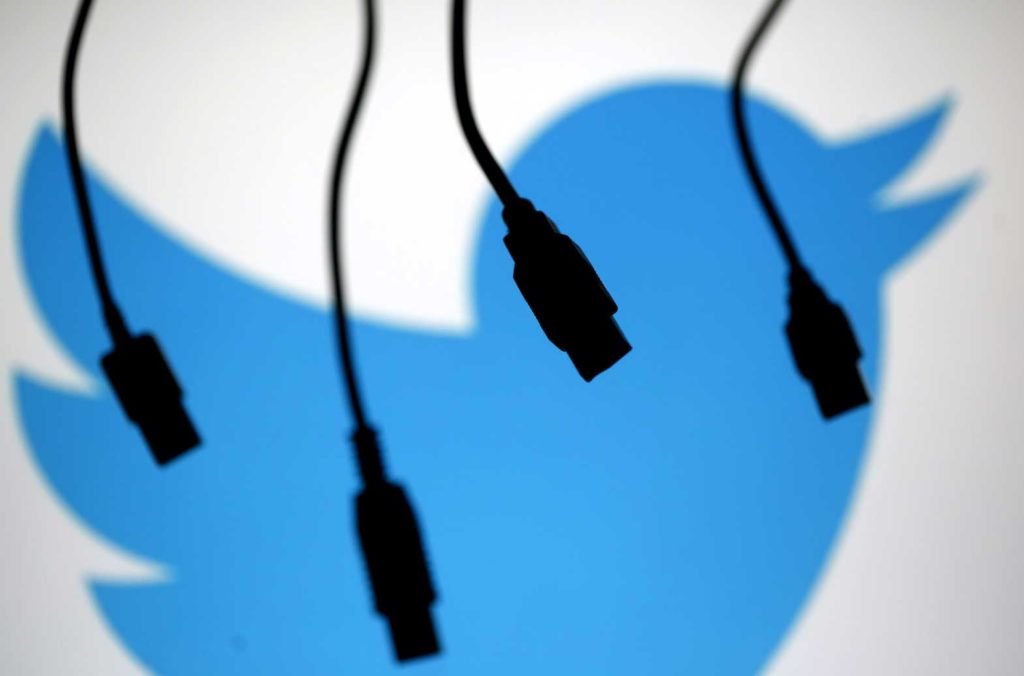Twitter, Facebook suspend some accounts as U.S. election misinformation spreads online

Electronic cables are silhouetted next to the logo of Twitter in this September 23, 2014 illustration photo in Sarajevo. REUTERS/Dado Ruvic/File Photo
SAN FRANCISCO – Twitter Inc and Facebook Inc on Tuesday suspended several recently created right-leaning news accounts posting information about voting in the hotly contested U.S. election for violating their policies.
Twitter said the accounts had been suspended for violating its policy against “coordination,” posting identical content while appearing independent or engaging in other covertly automated behavior. Facebook suspended them for inauthentic behavior.
One of those suspended, SVNewsAlerts, had more 78,000 Twitter followers, after adding more than 10,000 in the past week.
The account frequently warned of election-related unrest and highlighted issues with voting safety and reliability. It pointed to fraud claims about Democrats and called attention to Republican President Donald Trump’s rallies and speeches.
Other accounts suspended by Twitter included FJNewsReporter, Crisis_Intel and Faytuks.
A Facebook page also named SVNewsAlerts, which was suspended on Tuesday afternoon, had more than 20,000 followers. Facebook declined to comment further.
False or exaggerated reports about voting fraud and delays at the polls circulated on social media throughout the day, in some cases helped along by Republican accounts and online publications.
The FBI and the New York attorney general also said they were looking into a spate of mysterious robocalls urging people to stay home, which were reported in multiple battleground states.
The hashtag #StopTheSteal spiked from a few dozen mentions to more than 2,000 mentions over a 15-minute period in the morning, according to media intelligence firm Zignal Labs.
Zignal said unfounded claims about closed polling stations and excessively long lines in Republican-leaning areas in Pennsylvania, one of the most hotly contested states, received more than 33,000 mentions on Twitter.
Twitter appended fact-checking labels to multiple tweets from the @PhillyGOP account, which was among those using #StopTheSteal. The Philadelphia Republican Party did not immediately respond to a Reuters request for comment on the Twitter labels.
Far-right sites Breitbart and The Gateway Pundit both published articles claiming “the steal is on” in Pennsylvania that racked up thousands of shares on Facebook and Twitter.
In one video shared widely among conservative audiences, a Trump poll-watcher was seen being turned away from a site. Philadelphia officials investigated and concluded the man had mistakenly been barred under an expired law, which required authorization to enter a specific polling spot. He was then admitted.
The video was viewed 2.4 million times on Twitter.
Followers of the conspiracy movement QAnon also spread the Pennsylvania reports, according to researchers at misinformation tracking firm Alethea Group.

